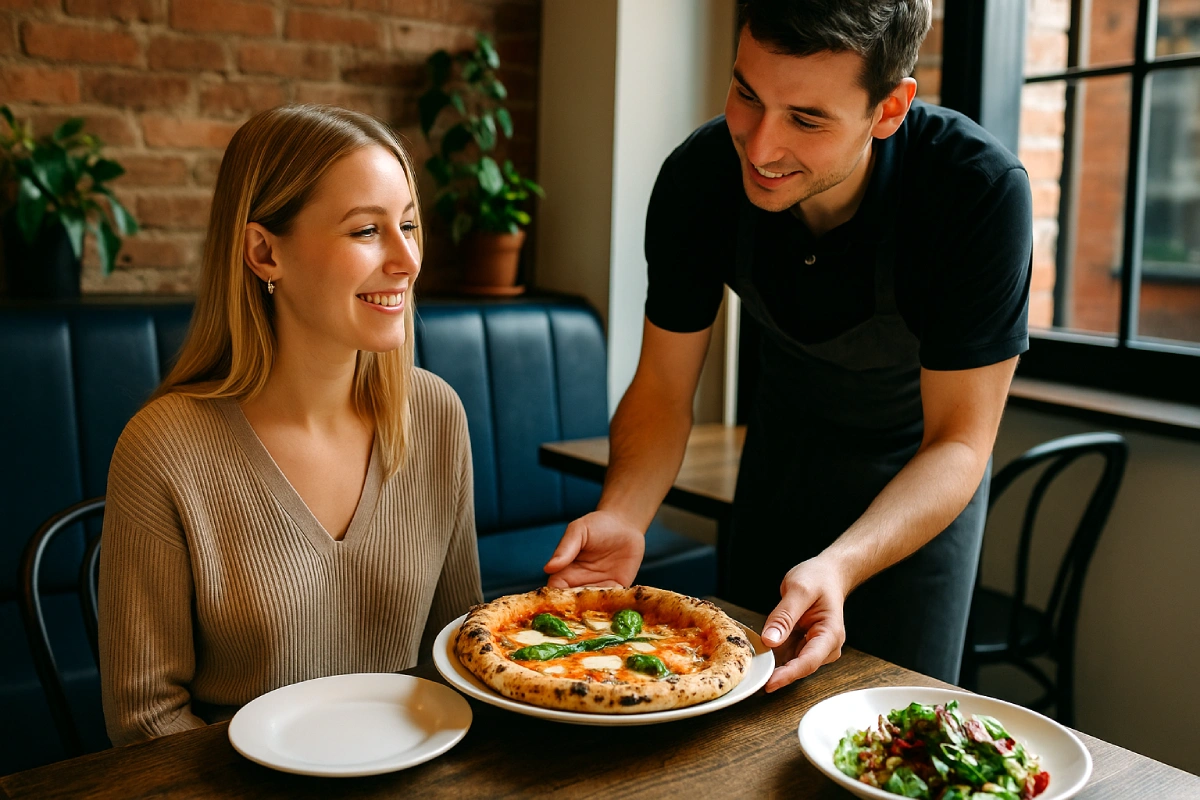Managing Celiac Anxiety and Pain: What’s Helping
Living with Celiac means dealing with more than just gluten avoidance. People in the gluten-free community are finding new approaches for anxiety, pain, and inflammation.
Table of Contents
Managing Celiac-Related Anxiety and Pain: What the Gluten-Free Community Is Trying
The restaurant says they can do gluten-free. Sure. They promise they understand cross-contamination. Right. Still spend the whole meal watching the kitchen like a hawk, mentally calculating how sick this might make you, wondering if that sauce touched a regular pasta spoon.
Then there’s everything else. Joint pain that shows up for no clear reason. Digestive stuff that won’t quit even when you’ve been careful. Inflammation that just camps out in your body indefinitely.
Celiac is more than dodging gluten. It’s managing all the other garbage that comes with it.
The Mental Load Gets Heavy
Most people figure it’s a diet restriction and that’s it. What they miss is the mental marathon—checking labels on literally everything, second-guessing meals constantly, having the same conversation about your needs repeatedly, stress about accidental gluten exposure that never fully goes away.
People on gluten-free forums bring this up constantly. It’s widespread. The mental toll rivals the physical stuff.
It’s important to remember that these feelings are normal, and anxiety affects many people living with celiac disease. Support groups exist online and in-person, offering shared experiences and emotional support.
Connecting with others facing similar challenges can make a big difference.

When Everything Still Hurts
Strict gluten avoidance doesn’t stop lots of Celiacs from dealing with persistent inflammation and pain. Joints complain. Muscles stay sore. Digestion refuses to settle down. Your immune system apparently didn’t get the memo that gluten’s off the table.
Healing takes ages. Symptoms can linger for months or years. That’s pushed more people toward trying wellness approaches outside the usual recommendations. Cannabis products, the wellness-focused kind, not recreational stuff, show up in community discussions about handling stubborn inflammation and discomfort.
Options like unflavored THC powder you can add to anything work into existing routines without announcing themselves. Goes in coffee, soup, smoothies, whatever. Zero taste, no texture shift.
When you’re already paranoid about ingredients, having something transparent and flavorless cuts out another anxiety trigger. Gluten-free by nature too (still verify any specific product though).
What’s Helping People
Beyond cannabis, gluten-free communities now cover way more ground. Recipe exchanges and restaurant intel still matter, but conversations have expanded.
- Approaches for managing stress:
- Apps targeting health-related anxiety specifically
- Breathing techniques before risky food situations
- Symptom journals that track physical and emotional patterns
- Support groups for people who simply “get it”
- Physical relief tactics:
- Yoga for aching joints, walks for gentle movement
- Heat therapy and bath soaks for muscle tension
- Anti-inflammatory foods: turmeric, ginger, fish oil
- Sleep (surprisingly difficult, always important)
Cannabis draws interest partly because it touches both sides—the physical pain and the mental stress. Both are constant companions for Celiacs.
Starting Small Matters
Common mistake with cannabis for wellness? Going too hard, too fast.
Begin with tiny amounts;a few milligrams, observe the response, and give it a full day before changing anything. The goal is gentle relief, not impairment. Think small, regular doses over sporadic larger ones: more like a daily vitamin than a crisis intervention.
The Gluten Question
Cannabis products aren’t automatically gluten-free. Gummies may include questionable additives, edibles sometimes come from facilities handling wheat, and tincture alcohol might have gluten grain origins.
Upside? People living gluten-free are used to thorough ingredient checks. Contact companies, look for lab testing, and confirm gluten-free status before consuming anything.
Simpler ingredient lists, like powders or pure extracts, mean fewer complications.
Long-Term Reality Check
Cannabis can ease symptoms, but it doesn’t cure celiac. The foundation is still total gluten avoidance, nutrient-rich foods, stress management, and listening to your body.
What’s shifted is the toolkit: cannabis is one option among many. Some find it useful at night, others when pain spikes despite staying gluten-free. Some experiment and decide it’s not for them. All valid.
No one expects perfect solutions. Managing celiac means using a mix of strategies tailored to your own body and circumstances.
Frequently Asked Questions
Is anxiety common in people with celiac disease?
Yes. Studies show anxiety, especially food-related anxiety, is much higher in people living with celiac disease, even on a strict gluten-free diet. Mental health screening and support can help.
What are some additional ways to manage stress with celiac disease?
Many people benefit from routines such as yoga, meditation, support groups, regular exercise, and journaling symptoms. Building a healthcare team with emotional support resources is also recommended.
Are wellness cannabis products safe for people with celiac?
Not always. Always check for lab testing, confirm gluten-free status, and look for simple ingredients. Gummies and baked edibles pose higher risk than plain extracts or powders.
Can supplements help manage anxiety and pain for celiacs?
Sometimes. Addressing nutritional gaps with supplements (like B12 or folate) may help reduce anxiety or pain resulting from deficiencies. It’s best to consult a specialist for personal advice.
What if self-care efforts aren’t enough?
Talk to your GP or a GI-specialized psychologist. Ongoing symptoms can be managed better with professional monitoring, psychotherapy, or support groups. Don’t hesitate to ask for help.
